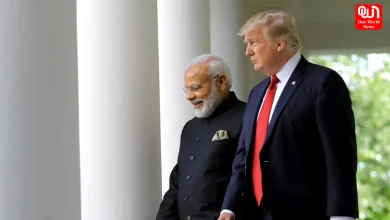FDI in Retail: Political & legal Issues

The 2014 general election is witnessing intense media frenzy. A prominent topic of discourse amongst all political parties is their view regarding FDI in retail. Launching the election manifesto for the Aam Aadmi Party, Arvind Kejriwal said, ‘We are not in favour of FDI in retail.’ Although the Bharatiya Janata Party is trying its best to project Narendra Modi as a pro-development and pro- reform leader, it has maintained its earlier stance of barring FDI in multi-brand retail. The Congress in its election manifesto has declared that it has no aversion to foreign investment. However, it has steered clear of mentioning FDI in retail in explicit terms.

Why is retail sector so important?
India’s growing economy makes its retail sector highly fertile and profitable to the foreign investors. The retail sector is one of the fastest growing sectors in India over the last few years. India is amongst the most attractive investment propositions for global retailers. The Indian retail industry is currently estimated at US $ 490 billion. According to FICCI, India’s retail market is expected to grow at 7% over the next few years, reaching a whopping US $ 850 billion by 2020. The global management-consulting firm, A T Kearney, in its Global Retail Development Index (GRDI) 2011, has ranked India as the fourth most attractive nation for retail investment. The Indian retail sector accounts for 22 % of GDP and employs a massive workforce of 8 %, next only to agriculture.
What exactly is ‘Retail’?
The Delhi High Court in ‘Federation Of Associations Of Maharashtra vs Union Of India’ defined the term ‘retail’ as the sale for final consumption in contrast to a sale for further sale or processing (i.e. wholesale). In other words, retail is the sale of goods to end users, not for resale, but for use and consumption by the purchaser. Manufacturers sell large quantities of products to retailers, and retailers sell small quantities of those products to consumers.

Why are political parties against allowing FDI in retail?
It is precisely for the fact that the retail sector employs a massive workforce, political parties, especially at a time when general elections are in full swing, are wary of committing anything which may indicate opening up of retail sector to foreign investors. At the core of the debate is the issue of employment. The critics point out that opening up of the retail sector would throw millions out of job and push them into the abyss of poverty. The local ‘kirana’ stores will see the end of the day. The critics further point out that multinational retailers like Walmart, Metro, Tesco and others will resort to price manipulation and that their entry will lead to the creation of cartels.
What do proponents of allowing FDI in retail say?
The supporters of FDI in retail, on the other hand, contend that it would open up new employment opportunities and that too in the organized sector. At present, the unorganized sector occupies 98% of retail and is characterized by massive exploitation and unmitigated oppression. The supporters of FDI in retail further point out that the multinational retailers can play a crucial role in streamlining and regulating the distribution and marketing of agricultural products in India. The scourge of middlemen is now a well-established fact in Indian agriculture. Farmers are paid a pittance for their produce, the consumers are charged exorbitantly and the staggering difference between the two are cornered by the unscrupulous middlemen, further exacerbating the food inflation in the country. By directly dealing with both the farmers and the consumers, multinational retailers can pay remunerative prices to the farmers and charge less from the consumers.

What are India’s international obligations regarding FDI in retail?
A bigger question, however, is often missed during all the animated debates and hullabaloo associated with FDI in retail. The question is can India get away without opening its retail sector to Foreign Direct Investment? The answer is an emphatic ‘no’. India is a founder member of World Trade Organization in 1995 and is signatory to the General Agreement on Tariffs and Trade (GATT) and the General Agreement on Trade in Services (GATS). GATS include wholesale and retailing services. India, therefore, under its international treaty obligations, is legally bound to open up the retail sector to foreign investment. The option left is to mitigate the negative effects of allowing FDI in retail and to accentuate the positive ones. As far as allowing FDI in retail sector is concerned, the question is not if but when.
http://bhuwanchand.files.wordpress.com/2012/02/fdi-in-indian-retail.jpg
http://bhuwanchand.files.wordpress.com/2012/02/fdi-in-indian-retail.jpg
http://bhuwanchand.files.wordpress.com/2012/02/fdi-in-indian-retail.jpg
http://i.dailymail.co.uk/i/pix/2012/12/06/article-2244229-1662D740000005DC-680_306x423.jpg







